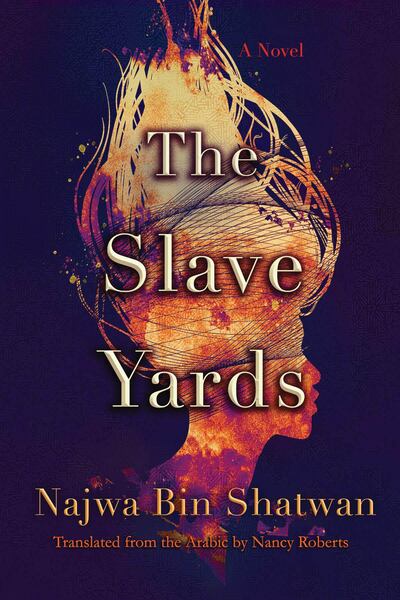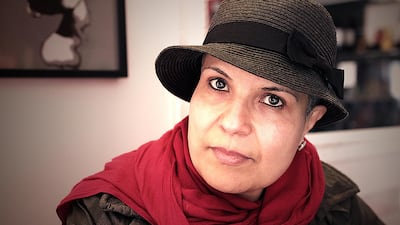In the past three years, Najwa Binshatwan brought out three short-story collections bristling with surreal satiric energy. Her stories weave together old-fashioned folk tales, bizarre anthropomorphised animals and dark humour. Although she's best known for her 2017 International Prize for Arabic Fiction-shortlisted novel, which will be released in English as The Slave Yards in April, it is her short works that most distinguish her writing.
The Libyan author's prose is also marked by her wry humour. When asked about her relationship to literary critics, she says it's much like her relationship to sports. "I encourage people to practise them and I'm pleased if this helps them develop their mental and physical health, but I don't like to practise or abide by them myself."
Next week, Binshatwan will appear at Hay Festival Abu Dhabi to give what is likely to be two highly entertaining talks about her literary journey, her writing and more. Binshatwan didn't take the straight road to a literary life. She was born in Benghazi and her parents neither read nor wrote. Binshatwan says she never wanted for anything and that her parents bought her "everything except books".
But she learnt to read herself and, as a child, she read whatever she could, "because there was no library in our house and no one who read in front of me". She befriended an author in Benghazi and was able to choose from the books in his large international collection.
But instead of following a path to literary studies, Binshatwan earned a master's degree in education and worked as a lecturer at Benghazi's Garyounis University. She moved to Rome to study for her doctorate, focusing on the history of slavery in Libya.
What, then, led Binshatwan to literary fiction? "Perhaps there are many factors," she says. "There's the way I'm made; the isolated place in which I was born; the nature of the people in my community; my secret interest in stories; my love of reading, imagination and art. Also, the genuine feeling that I belong to a large human family of books and writers."
In her youth, Binshatwan says she never dreamt of having a life in Europe. "I'd never imagined living, visiting or studying in Italy, but I was led there by particular conditions, similar to the ones that led my parents out of the city at the beginning of their lives together."
Interestingly, for someone who creates such vibrant worlds, Binshatwan suggests she's probably not the author of her own story. "At the end of the day, I am haunted by the suspicion that I am just an actor in a script that was written for me and that I'm neither the writer nor the planner of my role."
Her first book was a short-story collection, Al Maa fi Snarti (The Water in Snarti), published in 2002, followed by a play Al Metaf (The Coat), which won third prize at the 2003 Sharjah Festival of Arab Creativity and was published by the Ministry of Culture. But when people talk about Binshatwan's writing, it is usually her three novels that feature most prominently.
Binshatwan says she's interested in all sorts of narration, "whether it's a novel, a story or a tale – everything that revolves around the dilemma of existence".
"I suspect the novel's dominance over the short story, poetry and theatre is nothing but a period of prosperity in which one genre dominates, much as fashions rule and then gradually recede to make room for other genres," she says. "This also happened with Arabic poetry, which was the diwan of the Arabs for many centuries, ruling over the intellectual taste of the entire Arab region, then receding to make space for other genres."

But despite the novel's dominance, Binshatwan says she keeps returning to the greats of the short story, including Anton Chekhov, Daniil Kharms, Nikolai Gogol, Eduardo Galeano, Emile Habibi, Zakaria Tamer, Gabriel Garcia Marquez and Augusto Monterroso.
And while short stories are usually a harder sell in English translation, several of Binshatwan's have appeared in English-language collections and magazines. Last year, her short-story collection Catalogue of a Private Life won an English Pen Translates award and Sawad Hussain's translation is to be published by Dedalus Africa.
Hussain says you can always count on Binshatwan for the absurd "to a laugh-out-loud degree". Although, he adds, "you will never be short of weigh-you-down sorrow," either. "And through it all she is critiquing society, stretching our expectations of ourselves, of each other."
Translating Binshatwan's writing hasn't been easy, Hussain admits. "But it has by far been the most rewarding in my career. Her star is already on the rise and I can't wait for more people to fall in love with the magician that she is."

